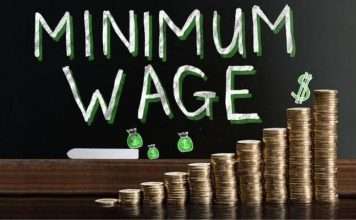The International Monetary Fund (IMF) has recommended that the federal government may need to raise a supplementary budget to accommodate a pay rise for Nigerian workers.
The IMF said in its latest country staff report for Nigeria that the negotiated amount may surpass the budgeted amount in the original 2024 budget.
“The authorities noted that a supplementary budget may be needed to accommodate the outcome of the ongoing wage structure negotiations which may exceed what they had included in the 2024 budget,” the report stated.
According to the report, the government might need to raise the domestic and external borrowing ceilings to prevent fresh borrowings from the central bank’s Ways and Means.
The new minimum wage has been an ongoing matter between Organised Labour and the government since the beginning of this year to cushion the impacts of the harsh economy.
Recent reforms in Nigeria including the removal of fuel subsidy and the unification of the foreign exchange market have pushed the cost of living to newer levels.
While labour leaders demand N615,000 from N30,000 as salaries for lowest ranked workers, there are indications the tripartite committee may recommend N70,000 as the new minimum wage, adding that the 2024 budget, the government allocated N6.48tn for personnel costs but the international lender posits that the amount may be insufficient.
Wale Edun, the Minister of Finance, had noted that the government planned to reduce the budget deficit from 6.1 percent in the 2023 budget to 3.8 percent in the current appropriation.
The report read in part, “Staff projects a higher fiscal deficit than anticipated in the 2024 budget, but broadly unchanged from 2023. The drivers are lower oil/gas revenue projections, reflecting IMF oil price forecasts but incorporating recent production gains; higher implicit fuel and electricity subsidies; continued suspension of excise measures included in the MTEF; and higher interest costs.
Staff factors in an under-execution of capital expenditure in line with past outcomes and estimates an FGN deficit of 4.5 percent of GDP relative to the 2024 budget target of 3.4 percent of GDP. For the consolidated government, this implies a projected deficit of 4.7 percent of GDP in 2024—compared to 4.8 percent of GDP in 2023 measured from the financing side—which is appropriate given the large social needs and factoring in a realistic pace of revenue mobilisation.
“Over the medium-term, staff projects consolidation in the non-oil primary deficit. With rising interest costs, government debt stabilises towards the end of the projection period.”
It said, “Based on staff’s projections, the authorities must raise the domestic and external borrowing ceilings to prevent renewed recourse to CBN financing. With higher interest rates, banks and nonbanks should have sufficient appetite—as indicated by market sources—conditional on careful management of system liquidity, including a likely reduction in the currently high cash reserve requirement.
“Staff projects that the government’s 2024 net financing needs can be met from the market and external borrowing. Domestic market financing needs to increase by 1.5 per cent of GDP over 2023. In addition, the government wants to retire outstanding ways and means borrowing from the CBN of 2.5 per cent of GDP through the issuance of further domestic securities.
It added, “While staff agrees that ways and means financing should be brought to zero by end-2024 in line with the law, the authorities may need to consider other options to avoid crowding out private sector credit, including drawing down the government’s deposits at the CBN built up in 2023 or a second securitisation operation to tackle this legacy problem.
“While external financing is costlier than when Nigeria last accessed Eurobond markets, staff supports an opportunistic issuance, also given upcoming maturities in 2025. A Eurobond issuance and some official financing are factored into staff’s projections as an integral part of the 2024 financing mix.”
